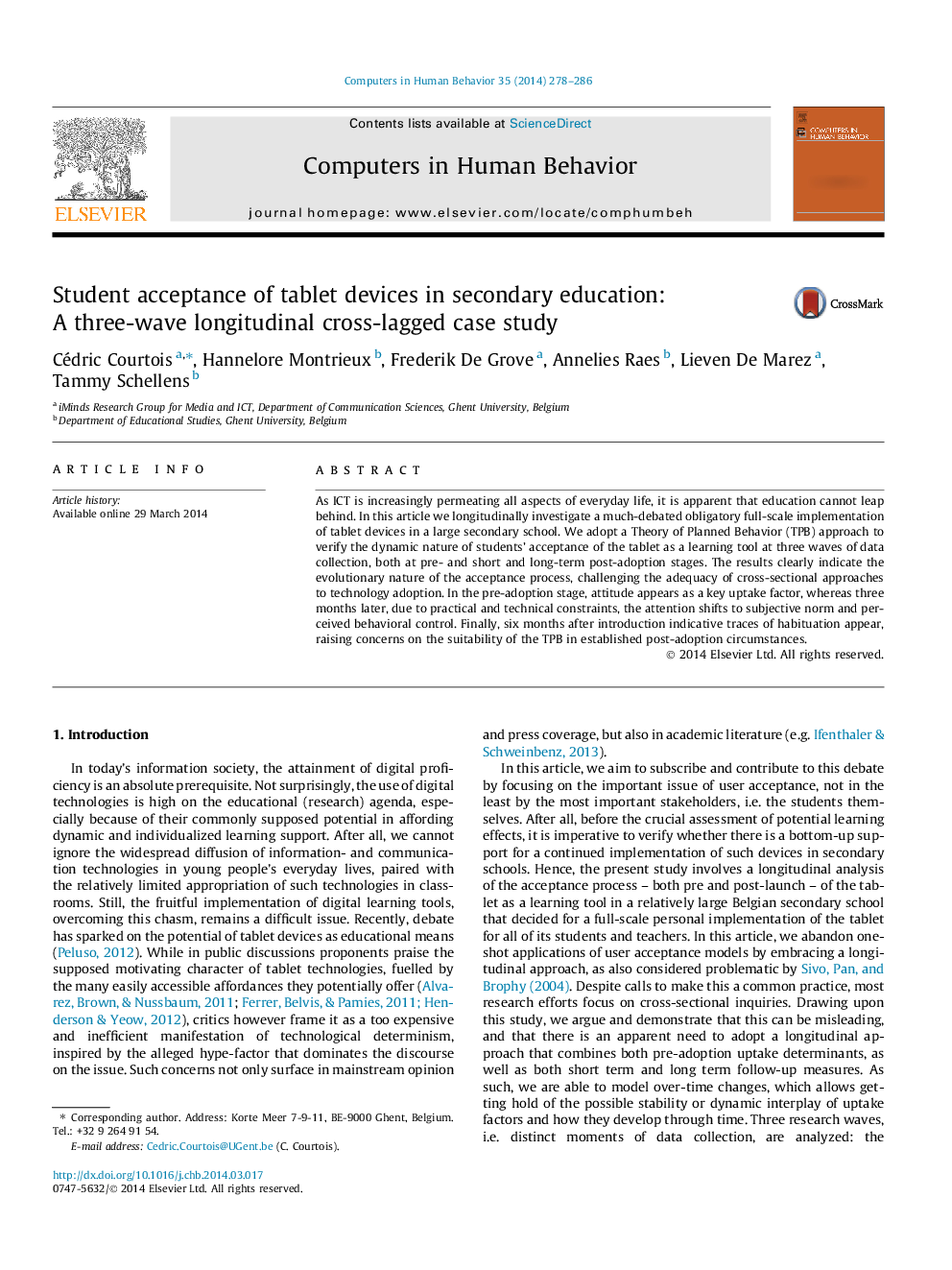| Article ID | Journal | Published Year | Pages | File Type |
|---|---|---|---|---|
| 350526 | Computers in Human Behavior | 2014 | 9 Pages |
•Uses Theory of Planned Behavior to model pre/post-adoption of tablets in education.•Demonstrates value of longitudinal cross-lagged analysis in technology acceptance.•Design appears methodologically appropriate frame, sensing key uptake factors.•Shows over-time interplay of attitude, subjective norm and perceived behavioral control.
As ICT is increasingly permeating all aspects of everyday life, it is apparent that education cannot leap behind. In this article we longitudinally investigate a much-debated obligatory full-scale implementation of tablet devices in a large secondary school. We adopt a Theory of Planned Behavior (TPB) approach to verify the dynamic nature of students’ acceptance of the tablet as a learning tool at three waves of data collection, both at pre- and short and long-term post-adoption stages. The results clearly indicate the evolutionary nature of the acceptance process, challenging the adequacy of cross-sectional approaches to technology adoption. In the pre-adoption stage, attitude appears as a key uptake factor, whereas three months later, due to practical and technical constraints, the attention shifts to subjective norm and perceived behavioral control. Finally, six months after introduction indicative traces of habituation appear, raising concerns on the suitability of the TPB in established post-adoption circumstances.
